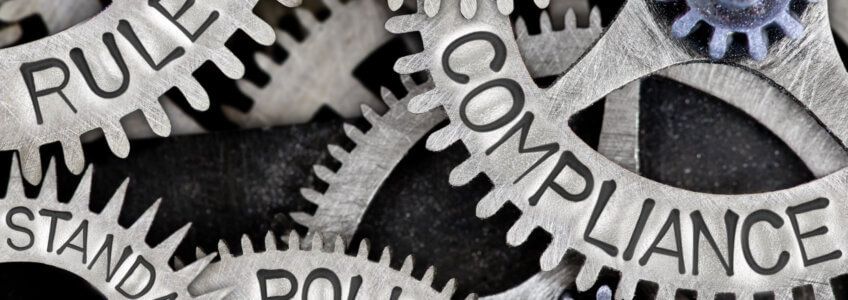
How to Establish a Business Entity in Minnesota
Maybe the most basic and foundational regulation for people who intend to start a business in Minnesota is the formal establishment of their business.
The first step is filing the necessary Articles of Organization (for an LLC) or Articles of Incorporation (for a corporation) with the Minnesota Secretary of State. You can find the forms and instructions for establishing an LLC here and the corporate forms here. Those pages also have forms and instructions for modifying established articles as well as changing registered agents or offices.
There are also annual renewal requirements in Minnesota, although the process is free for businesses that are active and in good standing. The Minnesota Secretary of State website has forms and instructions for other important tasks, like the statements of dissolution or termination.
You’ll also need to register with the IRS to obtain an EIN. You can apply through the IRS website. Minnesota-based businesses are required to register with the Minnesota Department of Revenue as well.
Businesses that employ people in the state must register with the Minnesota Unemployment Insurance (UI) Program through the Minnesota Department of Employment and Economic Development. The agency instructs business owners not to register until they have actually paid covered wages. The registration requirements can vary based on the type of employer.
Meeting License Requirements in Minnesota
Whether you will be subject to license requirements is dependent on the type of work your business will be performing. Minnesota has established an ELicensing web portal to help current business owners and people thinking of starting a business determine whether they will be subject to licensing requirements and apply.
From body art and inflatable amusement equipment to equine teeth floating and pawnbrokers, there is a dizzying array of license requirements in Minnesota, and it’s important to familiarize yourself with the licensing requirements, application process and rules that may be relevant for you.
If you have questions – which is common due to the complexity of Minnesota licensing regulations – it may be in your best interest to consult with a business lawyer. The referral counselors at the Minnesota Lawyer Referral and Information Service can help you find an experienced and vetted attorney who can assist with any disputes that may arise with the licensing body or hurdles that are standing between you and your business goals.
Minnesota Employment Laws
One of the ways in which both new and long-time business owners in Minnesota run into legal problems is by inadvertently violating the state’s many employment laws.
You can find an index of regulations on the Minnesota Department of Labor and Industry website. These rules cover a vast range of topics, from child labor in agriculture to the penalties for failure to pay workers in an appropriately timely manner.
Most employers will find the statutes to be complex and often convoluted. For example, Minnesota doesn’t have a simple, one-line minimum wage law. Instead, the minimum wage you’re required to pay will vary depending on the size of your business, the age of the worker and whether a worker is considered to be in “training”.
If you find yourself confused by Minnesota’s business regulations, or an employee has taken or is threatening legal action for alleged violations of Minnesota employment law, you may benefit from consulting with an experienced Minnesota business lawyer.
Minnesota Leave Laws
As a state, Minnesota didn’t require employers to offer paid sick leave until the earned sick and safe time law went into effect January 1, 2024. However, some municipalities, including Minneapolis and St. Paul, have long required local employers to offer paid sick leave.
Minnesota Workers’ Comp Laws
The state does require most employers to provide workers’ comp benefits to workers. Although this can be an additional operating cost, these laws are ultimately a net benefit for employers because workers’ comp limits the employer’s liability for injuries. Specifically, injured workers can be compensated for partial wage replacement, medical costs and vocational benefits but can’t seek pain and suffering and other non-economic damages.
Minnesota Safety Regulations
Another way in which Minnesota subjects businesses to extra regulatory hurdles and hoops is the state’s approach to workplace safety, which is regulated through the Minnesota Occupational Safety and Health Administration (MNOSHA).
For example, Minnesota’s recordkeeping and reporting requirements for job-related illnesses and injuries are more stringent than federal guidelines. Employers in some industries are also required by state law to establish “joint labor-management safety committees”. These required committees force owners to meet with workers to discuss improvements they can make beyond what’s federally required by OSHA. There are even unique rules pertaining to workplace ergonomics.
The complexity of MNOSHA regulations can make adherence difficult for new business owners and small employers. If you have concerns or are facing complaints from regulators or your workers, it may be in your best interest to consult with a business attorney.
Minnesota Data Privacy and Security
Minnesota has a few laws specific to data privacy and security, including the Minnesota Government Data Practices Act, the Minnesota Plastic Card Security Act, the Minnesota Health Records Act (MHRA) and a data breach notification law. Most businesses that adhere to industry-recommended best practices will likely comply with the Minnesota-specific requirements, but some of the state-specific rules, like the data breach notification requirements, may necessitate extra investments.
Minnesota Consumer Protections and Return/Refund Policies
Minnesota’s consumer protection statutes are not entirely dissimilar from those present in most states. Most of these are not applicable to every business, but it’s important to be familiar with those that you will be subject to through normal operations. The state’s return and refund policies are also comparable to similar laws in other states, but it is important to be cognizant of the requirements and ensure your business – especially if you use e-commerce – is adhering to the rules.
Get Help With Business Disputes in Minnesota
Are you starting a business in Minnesota, or are you an employer dealing with regulatory violations, workers’ comp claims or alleged violations of the state’s confusing employment laws? The Minnesota Lawyer Referral and Information Service (MNLRIS) can connect you with one of more than 200 qualified and vetted private practice attorneys in the Minneapolis–St. Paul area.
Our referral counselors excel at identifying business lawyers who have handled cases similar to yours in the past and can set you on the path to a positive resolution. Call us at (612) 752-6699 to get started.




